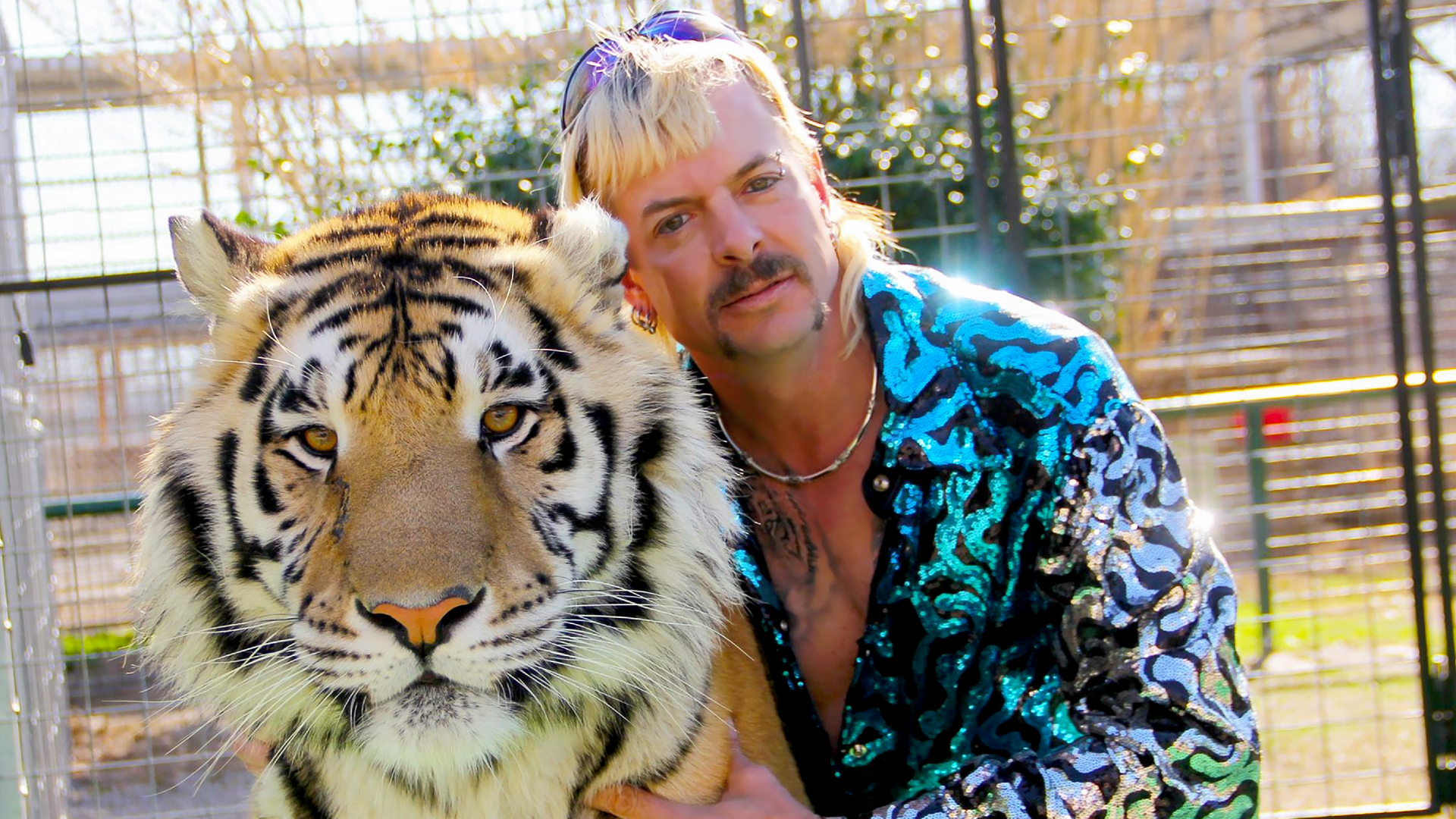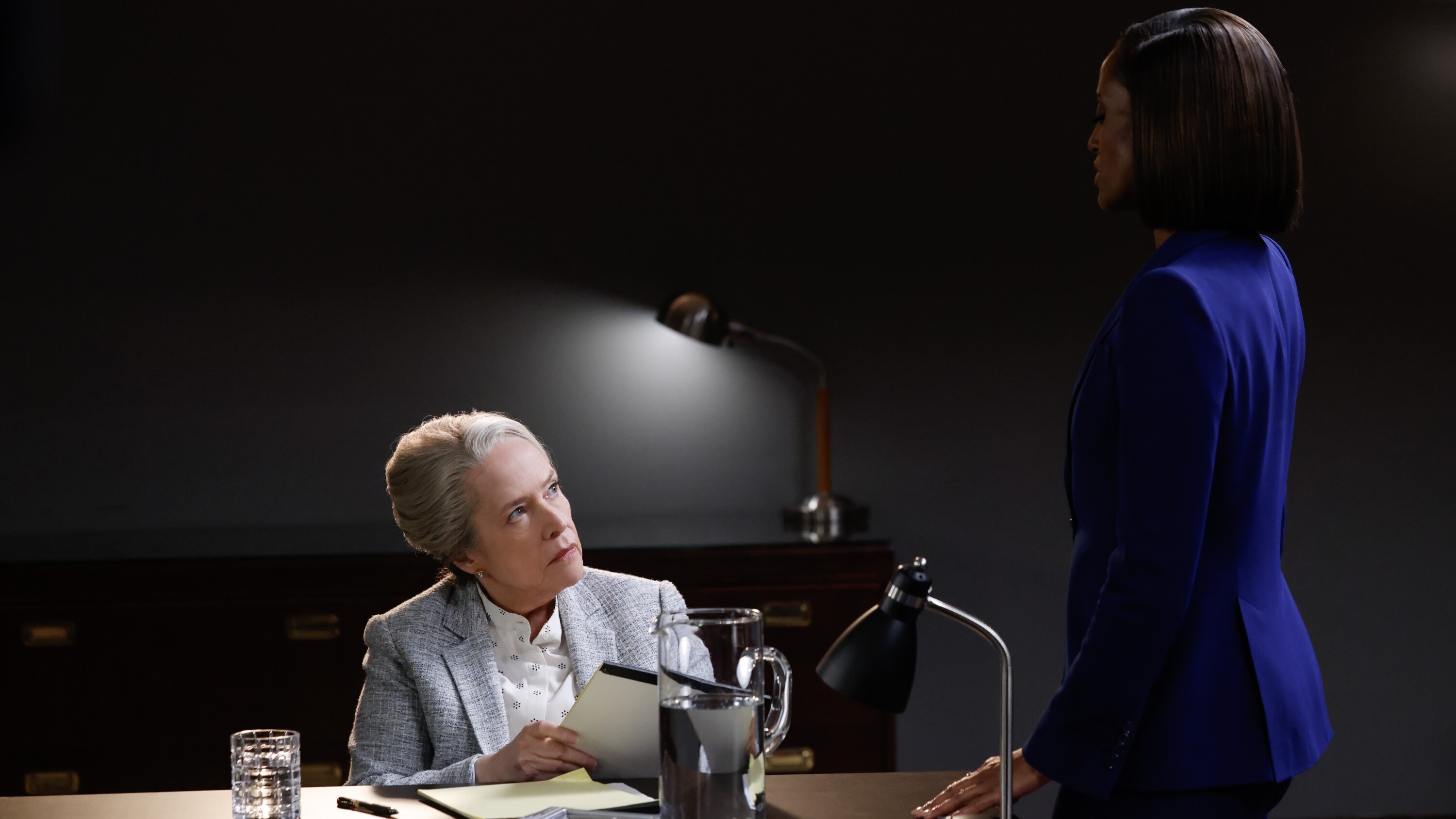Why we don’t need ‘Tiger King’ season 2
Netflix is bringing 'Tiger King' back for a second season, but doing so is a seriously bad idea.

When the first stage of the COVID-19 lockdown hit in late March 2020, the world was primed for a good old-fashioned collective TV binge-watch. We were all spending much more time at home and it felt like we hungered for a shared pop culture experience, something to view together to create a pandemic-era watercooler moment. Enter Tiger King, the Netflix true-crime series that proved to be the most addictive and salacious tonic for the moment.
The story of Joe Exotic, a mulleted zoo owner with a love for big cats, bad ideas and polyamory, was simply too weird not to be true. Viewers could not help but be engrossed in the increasingly bonkers story of wildlife rivalries, rancid meat on pizzas, presidential campaigns, organized killings and a mysterious missing husband. If it didn’t exist then either John Waters or Sean Baker would have had to make it up.
According to Nielsen ratings, Tiger King was watched by 34.3 million people over its first 10 days of release, ranking as one of Netflix's most successful releases to date. By July of the same year, Netflix announced that it had been viewed by more than 64 million households over its first month. A slew of Emmy nominations followed, as did the memes and the announcement of a limited series adaptation with Kate McKinnon and John Cameron Mitchell in the lead roles. It's fair to describe Tiger King was one of the true cultural benchmarks of the COVID era, for better or worse.
So, it wasn't necessarily a surprise when it was announced by Netflix that Tiger King would return for a second season later this year. It’s just simple economics: If something is a hit then you make more of it, regardless of whether or not the narrative demands it.
There isn’t too much information about the upcoming second season, only that Tiger King season 2 will bring “just as much mayhem and madness as season 1,” according to Netflix's Twitter account. That's certainly a high bar to clear, especially since Exotic is still in prison on charges of attempted murder for hire and animal abuse. Carole Baskin — the big cat conservationist who he tried to have murdered — has already criticized Netflix for renewing the show, as have animal rights charities and the many critics who called out the series for its extensive issues.
It was all too easy to be taken in by the tawdry parodic drama of Tiger King last year, a period that already seems eons ago to our lockdown-addled minds. It was prime binge-watching material, full of cliffhangers, catchphrases, twists and the sorts of developments one would have expected from a drag revue or early-era Shyamalan film.
It was such a dizzying viewing experience that you barely had time to think about the curious choices and framing of the directors, Eric Goode and Rebecca Chaiklin. The camera pushed viewers to laugh at these weird individuals in a manner that felt blatantly classist, especially with scenes such as John Finlay, a former zoo employee and lover of Exotic, being encouraged to film with his shirt off and great focus placed upon his missing teeth. The poverty-stricken area of Alabama where Exotic’s zoo was located was framed similarly.
Get the What to Watch Newsletter
The latest updates, reviews and unmissable series to watch and more!
Arguably, the most maligned individual in Tiger King, at least in terms of the narrative’s shaping, was Baskin. The series practically bent over backward to equate her — a kooky but seemingly well-meaning conservationist — with Exotic, a man who spent years threatening her and ultimately tried to have her killed. Far too much of the show was dedicated to an extremely suspect conspiracy that Baskin had her former husband murdered — an allegation for which there is zero hard evidence. Baskin, making obvious jokes about the speculation, is framed as some sort of confession and given far more weight than the videos of Exotic shooting effigies of Baskin and decrying her in all manner of ways.
The filmmakers behind Tiger King admitted they started out wanting to focus on the big cat market of America before focusing on Exotic and company because they were too fascinating to ignore. It certainly paid off but also signaled the misspent priorities of the series. Exotic became a twisted kind of folk hero to the point where the show barely seemed to care about the welfare of the animals he neglected, abused and killed. Remember, this is a guy with a long and sordid history of killing animals and violating the regulations of the United States Department of Agriculture's Animal Welfare Act. He killed emus with shotguns. He took in horses donated to him with the promise to their owners that he would care for them, only to kill them to feed the big cats. He fed expired meat to the animals and guests, as well as his own employees.
As reality TV producer Rick Kirkham noted, "there was footage in there [his own in-progress documentary] of Exotic actually killing animals for fun. In the course of my year, he walked up to a tiger he didn't like and just shot it in the head."
It seems doubtful that Netflix will learn the right lessons from Tiger King. Why do that when this way works so well? Indeed, it’s not just Tiger King that’s the problem here. The streaming service’s true crime output has long tiptoed a fine line from informative to salaciousness, but lately, it’s fallen headfirst into the latter time and time again. The formula of these series is so precise and repetitive that you could set your watch to it: the glossy cinematography, full of floating cameras; the foreboding music; the extensive use of gory crime scene photography; and the willingness to indulge questionable plots.
Don’t F**k with Cats started out as a story of internet sleuthing before morphing into a wildly exploitative dissection of the Luka Magnotta case that showed footage of animals being abused before berating the audience for paying attention to it all. Recent docuseries on the Night Stalker and Son of Sam murders focused on style over substance, playing up their subjects as magical boogeymen or puppets in a wider (and easily debunked) conspiracy. The series on Elisa Lam and the “mystery” of the Cecil Hotel seemed all too eager to indulge in the dangerous and exploitative theories surrounding her tragic death, all to emphasize the seeming strangeness of an old building. True crime has always been an ethically tricky genre, an intrinsically trashy format that has struggled to dress up its human misery in infotainment. Recently all pretense of respectability seems to have been dropped, in favor of trash, usually with a heap of memes on the side. Tiger King is but one of the many examples of this worrying trend.
Kayleigh is a pop culture writer and critic based in Dundee, Scotland. Her work can be found on Pajiba, IGN, Uproxx, RogerEbert.com, SlashFilm, and WhatToWatch, among other places. She's also the creator of the newsletter The Gossip Reading Club.











